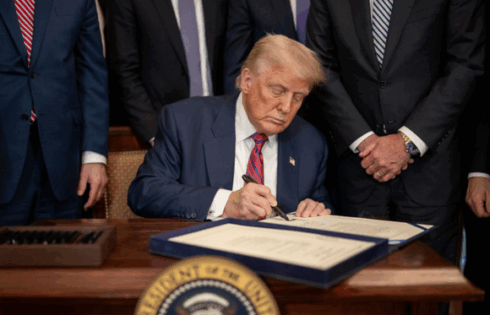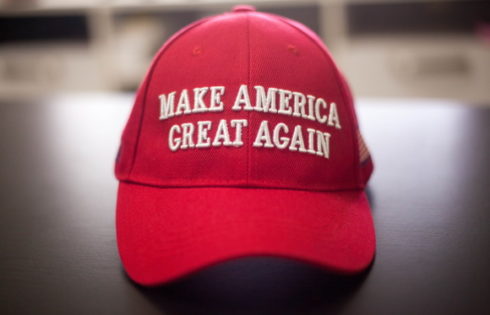
Policy echoes one from the 1990s; school utterly silent on how it will work
Harvard University announced a new set of guidelines for student groups hosting “controversial” speakers last month.
For some events, they require a “moderator” to be present – someone who has the power to cancel speaker engagements they deem sufficiently hazardous.
How will the terms be defined and applied? The Ivy League school’s administration won’t say.
For nearly three weeks, the dean’s office and Harvard media relations have ignored repeated requests for clarification and even to provide the policy in full.
It was only Monday that The College Fix got any response from the school, when a receptionist answered the phone at the media relations office. She said to email a generic media contact and promised she would alert those who checked the account, but The Fix didn’t hear back Monday.
The new policy, which is based on a 1990 policy from one division within Harvard, would not even be visible to the public if a civil liberties group hadn’t obtained a copy.
The Foundation for Individual Rights in Education published a transcription from a “photograph of the original” published in this academic year’s edition of the “Recognized Student Organization Resource & Policy Guide.”
What little is known of the guidelines, first reported by The Harvard Crimson Sept. 19, has proven controversial on campus.
The Crimson editorial board denounced them as “paternalistic, ineffective, and contrary to the College’s stated goals of free speech,” even though the guidelines are pitched as protecting speech against interruptions and shutdown attempts.
“We are also concerned that this policy will unequally affect conservative speakers, who are more likely to be protested against on campus,” the editorial board wrote.
New policy echoes rules from 1990
While the moderator policy is not new, Harvard has expanded it far beyond the policy’s initial scope.
It originated in “free speech guidelines” for the Faculty of Arts and Sciences in 1990, Kate Colleran, assistant dean for student engagement and leadership, told The Crimson. She said this was the first time it was being applied to student group leaders.
Though Harvard would not provide a copy of the new policy, The Fix managed to obtain the 29-year-old document from which it draws, a copy of which is located on Harvard’s website. The document aimed to reduce the “ambiguity about where the line should be drawn in terms of the rights of speakers, protestors, and audience.”
Harvard University Faculty of Arts & Sciences “Free Speech Guidelines,” 1990 by The College Fix on Scribd
It prohibits “disruption” of invited speakers, defined as “any repeated or continuous action which effectively prevents members of the audience from adequately hearing or seeing the event.”
The organization that invited the speaker is tasked with choosing a “moderator” from the faculty or administration. (The moderator doesn’t actually moderate the discussion, as the term is widely understood.) The university will “normally” approve the selection if that person is “broadly perceived” as someone who acts in a “neutral and non-partisan manner.”
The new policy, judging by FIRE’s transcription, contains near-identical language to the 1990 free-speech guidelines for FAS, the largest faculty at Harvard and only division with both undergraduate and graduate education.
But it’s missing definitions for key terms that trigger review by the dean of student’s office.
Student groups planning to host “high profile, controversial speakers, [or] VIP guests,” or events “where the principles of free speech have the potential to be compromised,” must register the events at least a month ahead of time.
The policy does not define or provide criteria to determine who or what counts as high-profile, controversial or a very important person, much less how to determine the “potential” for compromised free speech.
Instead, it directs student groups to contact JonRobert Bagley, associate director of student organizations and resources, to determine “if your guest fits into the above criteria.” Bagley did not immediately respond to an email from The Fix Monday night.
The dean of student’s office determines whether the event requires a moderator, based in part on the event’s determined status. “In most cases” that office will serve as moderator, but student groups can ask for any faculty member or administrator.
They must meet with the moderator and office staff before the event “to discuss tension points, anticipated concerns, audience attendance, Q&A method, and the Moderator’s role.” At the event, a “two-strike policy” will govern disrupters: The moderator will warn them once and then remove them from the event if they disrupt again.
“In rare cases a Moderator can decide to cancel an event because of a clear threat of physical violence or to University property,” the policy states. Like the determination of an event’s status, however, it does not explain how the moderator will determine a “clear threat.”
The Fix sent three emails and made two phone calls each to the media relations office and dean’s office starting Sept. 20 and running through Monday, asking to see the policy and seeking clarification on its provisions. None was returned.
Harvard Republican Club President Victoria Marquez told The Crimson the policy could be “helpful” for preventing disruptions. But “because of the protest culture on campus,” she added, it would “put an extra burden on the club” that liberal clubs would not face to the same extent.
Attempts to contact student groups at Harvard, including the College Republicans via a student contact, fell through. The College Democrats did not respond to a Facebook message.
The Crimson editorial board saw a unique threat to events featuring conservative speakers, given the “well-established liberal bent” of Harvard College. (The policy only applies to undergraduates, so it doesn’t encompass the university as a whole.)
“It would be easy, for example, to categorize conservative speakers as sparking threatening situations, based merely on the larger number of perturbed students,” it wrote. “Just because these speakers represent a campus minority, however, does not dismiss their right to share ideas.”
Rule ‘largely subjective,’ says watchdog group
The Foundation for Individual Rights in Education, which obtained a photo of the new policy, wrote in a blog post that it’s “less nefarious than it sounds.”
The role of moderator “appears to be a reasonable effort at protecting the free speech rights of both speaker and audience by prohibiting the heckler’s veto while allowing space for brief heckling that is itself protected speech,” wrote FIRE’s Ryne Weiss, chief research officer to the president.
But he pointed to several problems with the policy, mainly its ambiguous nature and one-month advance notice requirement.
“Who is and is not controversial is largely subjective, and where ambiguity and subjectivity exist in policy, bias and disparate enforcement often creep in,” Weiss wrote. The moderator could use “controversy” to inhibit either majority or minority viewpoints.
Because Harvard dictates the moderator be an “unbiased neutral party” with no further guidance, “students are left only to guess who might be acceptable to the administration and who might be rejected,” he continued.
The “waiting period” is particularly problematic and outdated in “the age of Twitter and the 24-hour news cycle, [where] events evolve and change rapidly,” Weiss wrote. Beyond preventing students from having timely events, the monthlong advance notice practically prohibits them from inviting politicians during campaign season, he added.
It’s also not obvious why students choosing their own moderator would need to wait at all, if Harvard’s concerns are purely logistical, according to Weiss.
“While we are pleased that the role of the Moderator does not itself intrude on the content of the event, several ambiguities in the policy’s language and its unnecessary waiting period keep us from being able to wholeheartedly praise it,” he concluded.
MORE: Black pro-life speaker shouted down at Harvard Law event
MORE: Harvard is spending ‘upwards of $10,000’ on security for each controversial speaker event
IMAGE: vchal / Shutterstock.com
Like The College Fix on Facebook / Follow us on Twitter





Please join the conversation about our stories on Facebook, Twitter, Instagram, Reddit, MeWe, Rumble, Gab, Minds and Gettr.